London gang crime down while violent offences increase
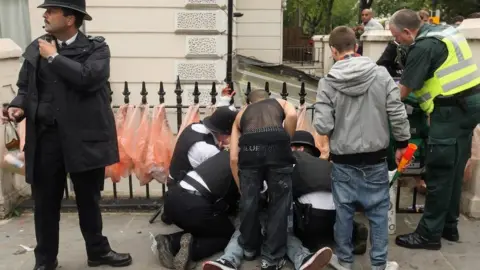 Getty Images
Getty ImagesGang-related violence has plummeted in London since the 2011 riots despite a recent spike in violent crime, according to new figures.
There have been 89 violent deaths in London since January and violent crime has risen by 40% since 2010.
Gang-related violent crime has nearly halved over the same period, according to Met Police figures obtained by the BBC.
But some experts are unconvinced the statistics really show gangs have gone.
The Met Police has put the drop down to the implementation of the Gang Violence Matrix.
The database, set up in the wake of the 2011 riots, holds information on about 3,800 people of interest.
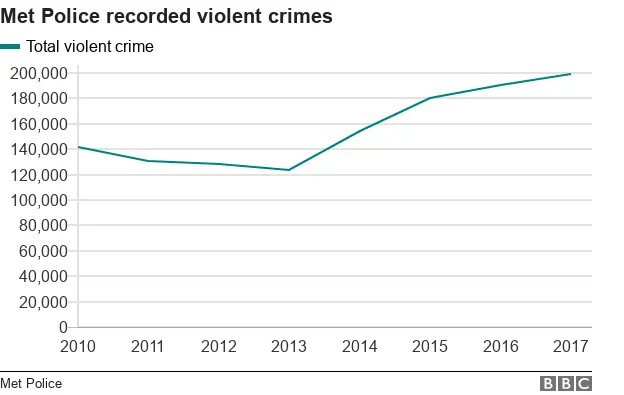
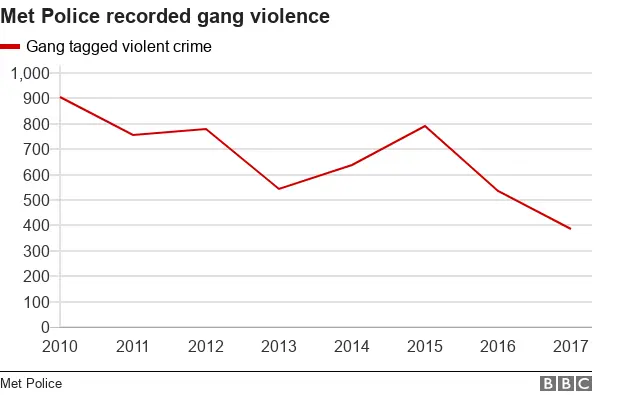
All officers "are highly-trained and experienced in working with, and recognising the signs of, gang affiliation and gang membership", a Met spokesman said.
"By identifying high-harm gang members and targeting them through intelligence-led enforcement, the number of violent offences committed by gang members has been reduced."
Police claim various types of intelligence, including history of violent crime, entries on social media and information from bodies including local councils to identify gang members, are used in the matrix.
But many believe the matrix is flawed.
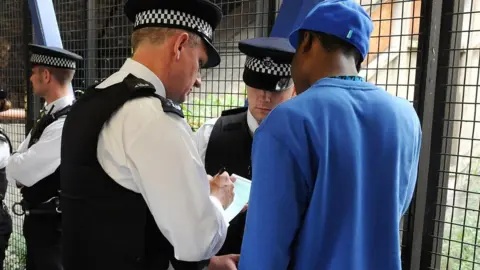 PA
PAIn May, Amnesty International labelled the tool "not fit for purpose", claiming it tracked a disproportionate number of people from ethnic minorities.
Retired Met Police Superintendent Leroy Logan claimed the matrix was "criminalising youngsters on a flawed algorithm".
An overemphasis on gang crime by politicians and the media was "fake news", he said.
"After the 2011 riots everyone blamed gangs and the feral youth. This narrative prospered under Boris Johnson and David Cameron, who hijacked the agenda which led to stereotyping," Mr Logan added.
"But if middle class kids did what those on the gang matrix did, it wouldn't be considered gang crime."
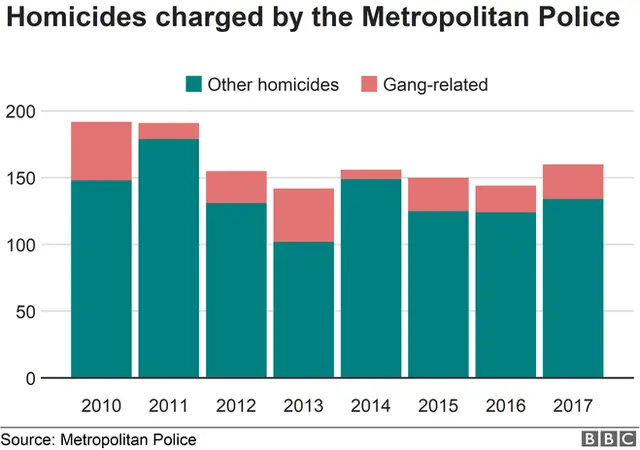
Last year, just one in every 500 violent crimes recorded by the Met Police was tagged as gang-related.
Gangs have been found to be responsible for 15% of London's murders since 2010.

Met Police definition of a gang
A gang is defined as "a relatively durable, predominantly street-based group of young people who see themselves [and are seen by others] as a discernible group, and engage in a range of criminal activity and violence".
They may also have any or all of the following features: Identify with or lay claim over territory; have some form of identifying structure feature and are in conflict with other similar gangs.

Dez Brown, who was convicted of manslaughter at the age of 17, said like many others he was classed as a gangster.
But Mr Brown, who is now an ordained minister running a project which tackles youth crime called Spark2Life, believes the "definition of gangs is too loose".
"This allows anyone to label you as a gang member," he said.
"I wasn't in a gang. There was an affiliation in the area and I had friends, but we weren't working as a collective and I hadn't pledged allegiance to any group.
"It's unfair to say all people involved in organised crime are a gang, lots are being exploited, some are just trying to get by. But in court they are labelled as part of the gang and tarnished with the same brush."
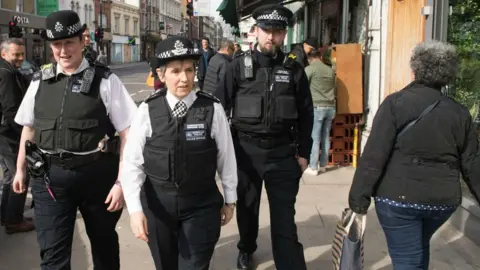 PA
PASimon Harding, an expert on gangs at the University of West London, said he believed the Met's definition of gang crime was insufficient.
"The new figures do not match what I'm seeing in Accident and Emergency departments, or on the street," the criminologist said.
"If the perpetrator and victim are affiliated then it's a gang crime, it doesn't matter if they were carrying out organised crimes.
"It's done within the context of building street capital though violence, which is related to gang crime."
The background issues around gang crime are a product of inequality, he believes.
"If we don't tackle these, they will crystallize, deepen and get worse in a way where investment wont shift them."
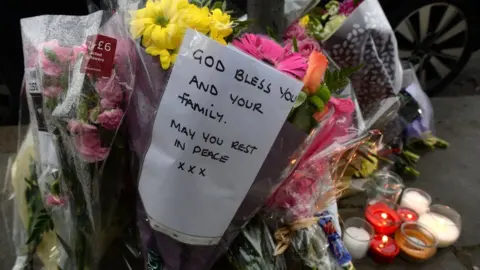 PA
PAAnother criminologist pointed to the way gangs are evolving as a potential cause of the statistical change.
"Although there is a decrease in reported gangland crime in London it doesn't necessarily mean an actual decrease," Mohammed Rahman, of Birmingham University, said.
Gangs are moving from "the analogue world to the digital world", which could mask the true scale of gang crimes, according to Dr Rahman.
While he believes the Met Police are doing a good job of tackling organised criminal aspects in London, he said people "are also moving out of London, through the county lines system".
Patrick Green, of the Ben Kinsella Trust, said despite debate over what constitutes a gang, "the bottom line is there has been an increase in the number of young people being murdered".
"There are vulnerable people walking around London in an heightened state of fear, and we are not having the level of success we should be," he added.
"The challenge is rectifying what is happening on the ground."
